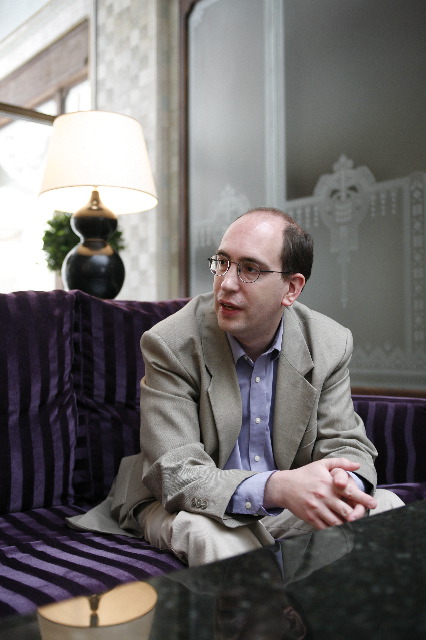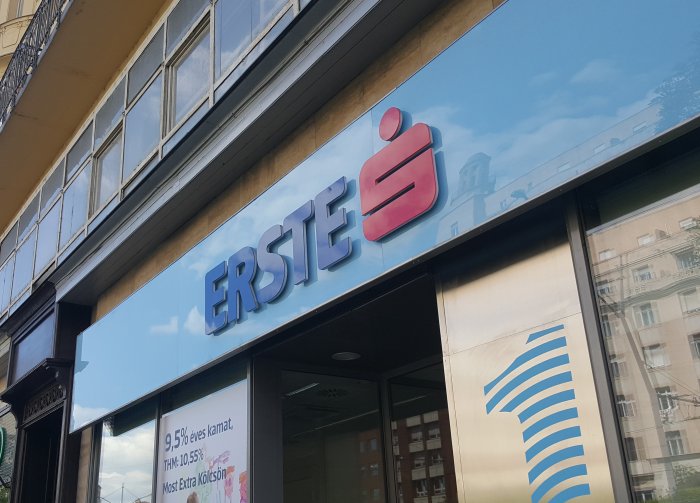20 Years Raising the Profile of Hungarian Poetry

Kálmán Faragó
As Hungarian poetry and translation initiative Converging Lines celebrates its 20th anniversary, I spoke to two of the co-founders: David Hill, a former editor of the Budapest Business Journal, and Kálmán Faragó.
Converging Lines was born out of a 2004 festival collaboration between Budapest literary cabaret The Bardroom, the British Council, British Airways, art’otel, the Hungarian Translators’ House, the British Embassy, and the British Chamber of Commerce in Hungary. It featured performances and workshops by English-language and Hungarian writers brought together to, as the festival’s organizers announced, “see what ideas, affinities and collaborations are sparked off.”
Since then, Converging Lines has raised the profile of Hungarian poetry internationally. Given that, according to the great poet Robert Graves, Hungarians have the same understanding of poetry as the Irish and Welsh (a huge compliment coming from him), being able to read and understand Hungarian poetry in translation is a boon for poetry lovers.
After the initial event, some of the poets’ translations of each other’s work were collected in a booklet also called “Converging Lines.” This grew into the 2010 anthology “New Order,” edited by UK-based Hungarian-born poet and translator George Szirtes.
Reviewing “New Order” for the Stride Books website when it was published, David Hart wrote: “I would guess that you could go into a bookshop, open the book at random, and want to stay with it, keep reading.” As much poetry in any language can be thoroughly baffling at first, Hart’s comment is praise indeed for the poets and translators.
One of the poets involved in the original event was Anna T. Szabó. In 2021, Arc published a selection of her poetry called “Trust” translated by respected British poet Clare Pollard, who also took part in the original Converging Lines. That had grown out of The Bardroom, a literary cabaret that ran from 2001 to 2013 that featured visiting and local writers reading in English or in Hungarian with English translation.

David Hill
Light Entertainment
“Converging Lines followed the format of The Bardroom. It featured poetry, song, comedy and storytelling presented in a light entertainment, variety show kind of format specifically engineered to appeal to a wider audience than usually goes to literary events,” recalls David Hill.
For Kálmán Faragó, “The Bardroom was about young poets and poetry lovers united by doing something that was far from obvious at the time and place. There was a sort of churning energy to it all, getting into a project not because of some master plan but because you just happened to know a person from another project.”
According to Faragó, “It was alive, unplanned and exciting. Converging Lines came about in much the same spirit. It was just people doing all sorts of things in every possible combination, and good things came out of it. Absolutely no agenda there.”
As the concept developed and more partners got involved, elements such as writing and translating workshops were added.
Converging Lines got its name because “converging” was a term much used in finance at the time, related to Hungary joining the EU. Hill remembers “one of my BBJ colleagues responding to Converging Lines with a wry smile, saying, ‘I like how you’ve incorporated the business concept into the name of a poetry festival.’”
The name was also a tribute to First Lines, an earlier initiative involving some of the visiting British poets. With appropriately poetic verve, Faragó adds that Converging Lines “was a victory of poetry, and of organization. It was glorious it was done. It took off the ground and stayed aloft.”
Career Booster
By bringing together writers from Hungary and the English-speaking world to collaborate on readings and workshops, Converging Lines led to new translations and a career boost for some of the writers and translators involved.
“Ottilie Mulzet said in an interview that being included as a translator in ‘New Order’ was one of her ‘first big breaks.’ Now she’s in charge of Hungarian translations at Seagull Books,” Hill tells me.
“For Clare Pollard, Converging Lines was an induction into translation. She went on to serve a stint as editor of the U.K.-based magazine “Modern Poetry in Translation,” during which she devoted one issue to Hungarian poetry.”
Some who took part were already established translators. Hill had been published in the U.K. newspaper “Independent,” the “Times Literary Supplement” and “Modern Poetry in Translation.” Since Converging Lines, he’s translated for Bloomsbury and De Gruyter and for music artists Kistehén, Vilmos Gryllus and Gregory Vajda.
Hungarian poetry continues to fascinate a wider international audience. Budapest and Hungary constantly inspire poets from other countries.
Independent U.S. literary publisher White Pine Press recently published “They’ll Be Good for Seed,” an anthology of Hungarian poetry in English translations by Gábor G. Gyukics and Michael Castro. The collection includes some of the poets featured in “New Order” but offers a broader range.
“If We’re Talking Budapest” is a 2023 anthology of short fiction in English about the capital city by Hungarian and foreign writers who have lived here and published by “Panel.” This English-language literary magazine, based in Budapest, describes itself as “the written record of a generation of artists from everywhere that can live anywhere, their literature and lives, in the language they speak.”
Faragó is confident that poets and writers will continue to champion Hungarian literature. “We were a creation of a specific time and place; we built upon the work of uncountable poets and many centuries. Now it’s someone else’s turn to build upon ours. Let the next generation of young, energetic literature-lovers have the stage like we did.”
You can follow Converging Lines and the Bardroom on LinkedIn and Facebook. “If We’re Talking Budapest” and “Panel” magazine are available at www.panel-magazine.com.
This article was first published in the Budapest Business Journal print issue of December 1, 2023.
SUPPORT THE BUDAPEST BUSINESS JOURNAL
Producing journalism that is worthy of the name is a costly business. For 27 years, the publishers, editors and reporters of the Budapest Business Journal have striven to bring you business news that works, information that you can trust, that is factual, accurate and presented without fear or favor.
Newspaper organizations across the globe have struggled to find a business model that allows them to continue to excel, without compromising their ability to perform. Most recently, some have experimented with the idea of involving their most important stakeholders, their readers.
We would like to offer that same opportunity to our readers. We would like to invite you to help us deliver the quality business journalism you require. Hit our Support the BBJ button and you can choose the how much and how often you send us your contributions.








